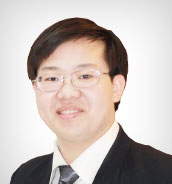▒╚▌^╝ē(j©¬)īŻĒŚ(xi©żng)ė¢(x©┤n)ŠÜ(ĖĮįöĮŌ)
ĪĪĪĪę╗�ĪóĖ∙ō■(j©┤)ŠõęŌŻ¼ė├└©╠¢(h©żo)ā╚(n©©i)╦∙Įoą╬╚▌į~Ą─▀m«ö(d©Īng)ą╬╩Į╠Ņ┐šŻ║
ĪĪĪĪ1. Summer is _______ (hot) season of the year.
ĪĪĪĪ2. Shanghai is one of _______ (big) cities in the world.
ĪĪĪĪ3. The Huanghe River isnĪ»t so _______ (long) as the Changjiang River.
ĪĪĪĪ4. Who is _______ (tall), the girl or the boy?
ĪĪĪĪ5. I think English is _______ (interesting) than math.
ĪĪĪĪ6. The more, the _______ (good).
ĪĪĪĪ7. The peopleĪ»s life in Southern Africa is getting _______ and _______ (bad).
ĪĪĪĪ8. Things are much _______ (light) on the moon than on the earth.
ĪĪĪĪ9. He is _______ (old) of the two brothers.
ĪĪĪĪ10. The car driver is very _______ (careful) when he is driving.
ĪĪĪĪĪŠ┤░ĖįöĮŌĪ┐
ĪĪĪĪ1.ę╗─Ļėą╦─╝Š��Ż¼Ž─╝Š╩Ūę╗─Ļ«ö(d©Īng)ųąūŅ¤ßĄ─╝Š╣Ø(ji©”)��Ż¼╣╩┤░Ė×ķthe hottestĪŻ
ĪĪĪĪ2.į┌one of ║¾æ¬(y©®ng)ė├ą╬╚▌į~Ą─ūŅĖ▀╝ē(j©¬)���Ż¼╝┤the biggest����ĪŻ
ĪĪĪĪ3.į┌asĪŁas ║═not so (as)ĪŁasĮY(ji©”)śŗ(g©░u)ųą�����Ż¼ą╬╚▌į~ė├įŁ╝ē(j©¬)�ĪŻ╝┤┤░Ė×ķlongĪŻ
ĪĪĪĪ4.ā╔š▀ŽÓ▒╚���Ż¼æ¬(y©®ng)┐╝æ]ą╬╚▌į~Ą─▒╚▌^╝ē(j©¬)�����ĪŻ╣╩┤░Ė×ķtaller(from www.zkenglish.com)�����ĪŻ
ĪĪĪĪ5.ėóšZ║═öĄ(sh©┤)īW(xu©”)ŽÓ▒╚���Ż¼ŪęŠõųą╩╣ė├┴╦▀Bį~thanŻ¼╦∙ęįįō┐šæ¬(y©®ng)╠Ņ▒╚▌^╝ē(j©¬)more interesting��ĪŻ
ĪĪĪĪ6.Ī░the + ▒╚▌^╝ē(j©¬)�����Ż¼the + ▒╚▌^╝ē(j©¬)Ī▒ęŌ×ķĪ░įĮĪŁĪŁįĮĪŁĪŁĪ▒�����Ż¼╣╩┤░Ė×ķbetter���ĪŻ
ĪĪĪĪ7.Ī░▒╚▌^╝ē(j©¬) + and + ▒╚▌^╝ē(j©¬)Ī▒ęŌ×ķĪ░įĮüĒįĮĪŁĪŁĪ▒╝┤┤░Ė×ķworse, worse�ĪŻ
ĪĪĪĪ8. much ║¾Įė▒╚▌^╝ē(j©¬)�Ż¼ŪęŠõūėųąėą▀Bį~than(▒╚)Ż¼╣╩š²┤_┤░Ė×ķlighter�ĪŻ
ĪĪĪĪ9.╚ń▒Ē╩Šā╔š▀ųą▌^┤¾Ą──ŪéĆ(g©©)Ż¼æ¬(y©®ng)į┌▒╚▌^╝ē(j©¬)Ū░╝ėthe��Ż¼┤░Ė×ķthe elder�ĪŻ
ĪĪĪĪ10.¤o▒╚▌^ī”(du©¼)Ž¾Ż¼╝┤ė├ą╬╚▌į~Ą─įŁ╝ē(j©¬)�Ż¼┤░Ė×ķcarefulĪŻ
ĪĪĪĪČ■�����Īó▀xō±╠Ņ┐šŻ║
ĪĪĪĪ1. Which is _______, English or Chinese?
ĪĪĪĪA. interesting B. interestinger
ĪĪĪĪC. more interesting D. most interesting
ĪĪĪĪ2. The population of China is _______ than _______ of any other country in the world.
ĪĪĪĪA. larger, the one B. more, that
ĪĪĪĪC. larger, that D. more, the one
ĪĪĪĪ3. Since China has been a member of WTO, English is _______ useful than before.
ĪĪĪĪA. more B. most
ĪĪĪĪC. much D. very
ĪĪĪĪ4. All the students in our class are over fifteen except Li Lei. He is _______ in our class.
ĪĪĪĪA. older B. the oldest
ĪĪĪĪC. younger D. the youngest
ĪĪĪĪ5.Ī¬These moon cakes are delicious.
ĪĪĪĪĪ¬Yes. But I think the ones with nuts are __ of all.
ĪĪĪĪA. delicious B. the most delicious
ĪĪĪĪC. more delicious D. the delicious
ĪĪĪĪ6. The number of the trees around my village is getting _______.
ĪĪĪĪA. larger and larger B. higher and higher
ĪĪĪĪC. more and more D. less and less
ĪĪĪĪ7.In our city, itĪ»s _______ in July, but it is even _______ in August.
ĪĪĪĪA. hotter, hottest B. hot, hot
ĪĪĪĪC. hotter, hot D. hot, hotter
ĪĪĪĪ8. She is as _______ (busy) as a bee.
ĪĪĪĪA. busy B. busier
ĪĪĪĪC. the busiest D. more busy
ĪĪĪĪ9. It is _______ to work out this problem. You neednĪ»t go to the teacher.
ĪĪĪĪA. enough easy B. easy enough
ĪĪĪĪC. easily enough D. very easily
ĪĪĪĪ10.Of the two Australian students, Masha is _______ one. I think you can find her easily.
ĪĪĪĪA. tallest B. the taller
ĪĪĪĪC. taller D. the tallest
ĪĪĪĪĪŠ┤░ĖįöĮŌĪ┐
ĪĪĪĪ1. CĪŻČÓę¶╣Ø(ji©”)ą╬╚▌į~Ą─▒╚▌^╝ē(j©¬)æ¬(y©®ng)į┌ą╬╚▌į~įŁą╬Ū░╝ėmore�����ĪŻ
ĪĪĪĪ2. C�ĪŻ╚ń╣¹▒Ē╩ŠpopulationĄ─Ī░ČÓĪ▒╗“Ī░╔┘Ī▒Ż¼ę¬ė├ą╬╚▌į~large╗“small���ĪŻĄ┌Č■┐šė├┤·į~that┤·╠µthe population��ĪŻ
ĪĪĪĪ3. A��ĪŻČÓę¶╣Ø(ji©”)║═▓┐Ęųļpę¶╣Ø(ji©”)ą╬╚▌į~Ą─▒╚▌^╝ē(j©¬)Ą─śŗ(g©░u)│╔╩Ūį┌ą╬╚▌į~įŁą╬Ū░╝ėmore��Ż¼ūŅĖ▀╝ē(j©¬)ät╝ėthe most��ĪŻ
ĪĪĪĪ4. C��ĪŻĖ∙ō■(j©┤)ŠõęŌĪ░│²└Ņ└ū═Ō��Ż¼╬ęéā░Ó╦∙ėą═¼īW(xu©”)Č╝│¼▀^┴╦15ÜqĪ▒�����Ż¼čį═Ōų«ęŌ����Ż¼└Ņ└ū╩Ū╬ęéā░Ó─Ļ╝o(j©¼)ūŅąĪĄ─��ĪŻ
ĪĪĪĪ5. B���ĪŻį┌įōŠõŠõ─®│÷¼F(xi©żn)┴╦▒╚▌^Ą─ĘČć·of all��Ż¼Č°allųĖ╚²š▀╗“╚²š▀ęį╔Ž�Ż¼╦∙ęįæ¬(y©®ng)┐╝æ]ą╬╚▌į~Ą─ūŅĖ▀╝ē(j©¬)�ĪŻ
ĪĪĪĪ6. AĪŻ▒Ē╩ŠöĄ(sh©┤)┴┐Ą─Ī░ČÓĪ▒╗“Ī░╔┘Ī▒ė├ą╬╚▌į~large╗“small���ĪŻ
ĪĪĪĪ7. D���ĪŻĄ┌ę╗┐š¤o▒╚▌^Ą─ĘČć·ė├įŁ╝ē(j©¬)hotŻ¼Ą┌Č■┐š╩ŪJuly(Ų▀į┬)║═August(░╦į┬)ŽÓ▒╚▌^�����Ż¼╣╩ė├▒╚▌^╝ē(j©¬)hotterĪŻ
ĪĪĪĪ8. A��ĪŻį┌asĪŁasĮY(ji©”)śŗ(g©░u)ųąą╬╚▌į~ė├įŁ╝ē(j©¬)(from www.zkenglish.com)���ĪŻ
ĪĪĪĪ9. B�ĪŻ«ö(d©Īng)enoughą▐’Śą╬╚▌į~Ģr(sh©¬)����Ż¼enoughæ¬(y©®ng)Ę┼į┌ą╬╚▌į~Ą─║¾├µĪŻ
ĪĪĪĪ10. B����ĪŻĖ∙ō■(j©┤)ŠõęŌMasha╩ŪČ■éĆ(g©©)īW(xu©”)╔·ųą▌^Ė▀Ą──ŪéĆ(g©©)ĪŻ╚ń▒Ē╩ŠĪ░Č■š▀ųą▌^ĪŁĪŁĄ─ę╗éĆ(g©©)Ī▒ätį┌▒╚▌^╝ē(j©¬)Ū░╝ėthe�ĪŻ






